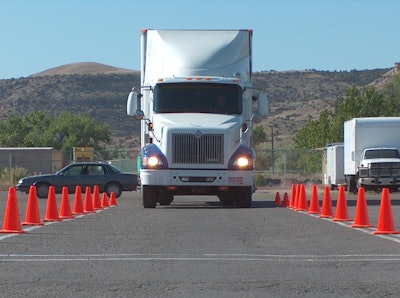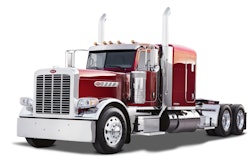 CDL training has been put on hold during the COVID-19 crisis
CDL training has been put on hold during the COVID-19 crisisEmployment in the for-hire trucking industry fell in April by 88,000 jobs due to economic slowdown from coronavirus. While the driver shortage is temporarily erased, a chokepoint in licensing and training new drivers at present could have negative consequences in the near future.
CDL schools were ordered closed by state governments as were their DMV agencies in March as part of various shelter-in-place rules.
The Commercial Vehicle Training Association (CVTA), together with trucking and transportation company leaders, has sent a letter to the National Governors Association asking states to list CDL Schools and DMVs as essential services. CVTA represents nearly 200 schools in 42 states that collectively graduate 50,000 entry level commercial drivers annually.
Currently, about 18 states have not reopened their DMVs to issue commercial learners permits (CLP), written tests and conduct CDL skills exams for student drivers. California, Pennsylvania and New Jersey are among those that have not re-opened. States that have opened are not operating their DMVs at full capacity, said Don Lefeve, president and CEO of CVTA.
Lefeve estimates between 25,000 and 40,000 CDL students are stuck in limbo because they either can’t get a CLP or have one but are waiting to complete the written exam or skills test in their home states.
“We need to maintain a pipeline of drivers,” he said. “Right now, driver shortages are virtually wiped out in the short term, but we also don’t produce drivers overnight. It takes two to three months to produce a safe driver to go through school, get a CDL and then go to work for a carrier in training for an additional month or two.”
Currently, 24 states do not allow private schools to become third party CDL testers. The CVTA coalition has also appealed to state governors to grant authority to schools and the U.S. Department of Transportation, if necessary. Those efforts have yielded few results.
“We encourage all states who are not allowing third party testing to consider implementing third party testing to ensure we still maintain some capability to produce drivers,” he said. Some states may need to call their legislators back into session to grant authority to third parties, but by the time they could do it the pandemic might be over.
Proposing the DOT be granted authority to issue CLPs and CDLs – or to give CDL schools the same right – is, Lefeve, said, “a break glass in case of emergency proposition” to ensure that at least a modest pipeline of drivers are getting trained.
Lefeve predicts that a backlog of CDL testing will grow as states open up and once the economy picks up momentum and motor carriers ramp up their hiring, the negative impacts of the chokepoint on CDL testing could be felt by the end of the year and into 2021.











